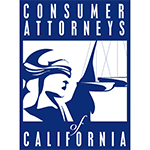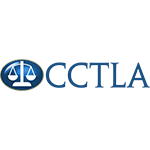California School Sexual Abuse Lawyers
When parents send their children to school, they assume that teachers, administrators, and other adults will ensure the safety of the children under their care. Unfortunately, sexual abuse, sexual harassment, and even sexual violence occur too often in many school environments. Parents in California who discover their child has been a victim of any of these crimes should immediately seek the guidance of a California school sexual abuse lawyer. A lawyer can help protect your child from future abuse and seek compensation for any challenges they have faced.

Quick Links
- What is sexual misconduct in school?
- Types of Sexual Abuse in Schools
- Where Sexual Misconduct May Occur
- Who might sexually victimize children in schools?
- How common is sexual misconduct in schools?
- What are the warning signs of sexual abuse in schools?
- What are a school’s responsibilities for protecting against sexual violence?
- How must a school respond to allegations of sexual harassment?
- Reporting Sexual Abuse in Schools
- Determining Liability for Sexual Abuse at School
- Can I sue a school and/or school district for sexual abuse?
What is sexual misconduct in school?
Sexual misconduct can include a variety of behaviors. In school settings, it refers to an employee of the school acting inappropriately toward a student with regard to sexual conduct.
All of the following can be classified as sexual misconduct:
- A school employee indicates that they will offer specific benefits or services, such as adjusting grades if a student provides sexual favors
- Unwelcome sexual behavior, including behavior that prevents a student from receiving access to the education or benefits offered at the school
- Sexual contact between an employee of the school and a minor in any form
- Lewd, inappropriate behavior
In a recent investigation, a kindergartner at a Sacramento school claimed that she had been touched inappropriately by a school employee. Her mother immediately reported the sexual misconduct, and the police moved quickly to investigate the incident.
While girls are more likely to be victims of sexual misconduct than boys, it’s important to remember that boys can also be targets for predators.
Types of Sexual Abuse in Schools
Typically, sexual abuse falls into two categories: contact and non-contact abuse. Contact sexual abuse might include:
- Rape
- Unwanted kissing or any kissing between a minor and an adult
- Inappropriate touching, including any genital or breast contact
- Forcing someone else to engage in genital contact or inappropriate touching
Non-contact sexual abuse includes activities such as:
- Exposing a child to sexual activity in each other’s presence
- Exposing a child to websites, videos, books, or other material containing sexual activity
- Exposing one’s genitals to a child
- Sexual conversations, contexts, or solicitation
Often, non-contact sexual abuse goes unreported, especially at high school and college levels. Reporting it quickly, however, can help reduce future cases of sexual abuse and allow you to take further action.
Where Sexual Misconduct May Occur
Sexual misconduct can occur in a variety of locations. School officials should take proper care and monitor school grounds carefully.
Contact or non-conduct misconduct may occur in any of the following locations:
- Specific buildings that are part of the school’s facilities
- Other on-campus locations, including sports fields
- Virtual campuses
- Off-campus settings where school administration is in control, such as field trips
- Off-campus buildings related to a campus organization, such as fraternity or sorority houses on a college campus
Who might sexually victimize children in schools?
Many people assume that educational institutions are safe places for their children, but unfortunately, all types of authority figures are capable of abusing children under their care. Sexual abusers may be:
- Coaches
- Teachers
- Principals
- Staff members
- Guidance counselors
- Bus drivers
- Aides
- Parent volunteers
How common is sexual misconduct in schools?
In the 2017-2018 school year, the Department of Education reported 14,938 incidents of sexual violence in schools. Of this number, 786 incidents were reports of rape or attempted rate. In 2015-2016, California ranked 9th in the list of highest-ranking states for incidents of rape or attempted rape per 1000 students.
What are the warning signs of sexual abuse in schools?
As a parent, it’s important to remain aware of the potential risk factors and address any warning signs of sexual abuse quickly. Be on the lookout for the following signs in your child:
- Excessive knowledge of sexual activity, including knowledge that is inappropriate to the child’s age
- Sexual behavior that seems inappropriate for the child’s age, including acting out intimate activities
- Changes in mood or personality
- Reluctance to be naked even while changing clothes or bathing
- Fear of being alone with specific individuals
- A sudden increase in health problems such as stomachaches or headaches
In addition, be wary of:
- An adult who shows excessive interest in a specific child
- An adult who is often alone with a child
- Any other signs of an inappropriate relationship between a student and adult
Parents should carefully observe any warning signs of potential sexual misconduct and keep an open dialogue with their children to help prevent abuse.
What are a school's responsibilities for protecting against sexual violence?
According to Title IX of the Education Amendments of 1972, schools have specific responsibilities to their students when it comes to handling and preventing sexual violence in schools. These responsibilities include the following:
- A school must respond promptly to any allegations of sexual violence
- The school must take immediate action to eliminate sexual harassment or violence and prevent it from reoccurring
- The school must act even if a student or parent does not want to pursue further action, including launching a criminal investigation if needed
- Every school must have a policy against sexual abuse
- The school must have a Title IX coordinator who can ensure that the administration remains in compliance
- The school needs to have clear procedures that allow students to share complaints regarding sexual abuse
$23.5 Million
Settlement won for government fraud in a whistleblower case against one of the world’s largest medical device manufacturers
$240 Million
Settlement in a nationwide defective medical device case involving defective pacemakers and cardiac defibrillators against Boston Scientific and Guidant
How must a school respond to allegations of sexual harassment?
If sexual harassment occurs in a school, the school authorities must respond promptly to address the issue and take steps to ensure that the harassment does not continue. Even if the student or their parent does not want to conduct a formal investigation, the school must look into the incident. The requirement mandates that schools must investigate every instance of a complaint.
The school is required to supply parents and legal guardians with the name and contact information of the Title IX coordinator. In addition, this information must be displayed clearly on the school’s website. Finally, the school must provide support to any victim of sexual harassment without any monetary cost to the victim.
Reporting Sexual Abuse in Schools
Title IX allows anyone to report sexual discrimination, sexual harassment, or sexual abuse, both verbally or in writing. Fellow students, parents, bystanders, and others aware of harassment or discrimination can take action to report inappropriate relationships and behaviors.
Want to learn more about your rights? Do you feel that a school, school district, college, or university has violated federal law regarding sexual harassment or discrimination? The U.S. Department of Education can help. To learn more or report an incident, call (800) 421-3481, email ocr@ed.gov, or fill out a complaint form online.
Determining Liability for Sexual Abuse at School
Generally, the perpetrator bears primary liability for any act of aggression or harassment at school. However, in some cases, the school may share liability for incidents of sexual harassment or abuse. A school may be legally responsible for sexual misconduct if administrators:
- Did not take adequate security precautions to protect students, including supervision or oversight of teacher-student interactions
- Failed to set out clear requirements for student-teacher interactions
- Allowed a teacher to continue working despite viable past allegations
Can I sue a school and/or school district for sexual abuse?
In many cases, you have the right to sue a school or a school district. If the school allowed sexual abuse to occur or failed to take adequate precautions to protect the students in its care, then the school may be liable. Contact Cutter Law P.C. to connect with a supportive California school sexual abuse attorney who can help you navigate the challenges of a sexual abuse lawsuit and receive compensation for any losses you suffered as a result of the abuse.
Important 2024 Update
California has eliminated the deadline to file a childhood sexual abuse lawsuit for anyone whose abuse occurred on or after January 1, 2024, allowing victims to bring an action anytime.
Learn more: California Statute of Limitations for Sexual Abuse
Schedule A Free Case Review
"*" indicates required fields
Our Office Locations
Sacramento Office
401 Watt Avenue Suite 100
Sacramento, CA 95864
Phone: 916-290-9400
Oakland Office
Cutter Law P.C.
1901 Harrison Street Suite 910
Oakland, CA 94612








